Thanks to popular media, prepping has garnered a negative reputation.
Preppers are looked at as individuals that are paranoid hoarders at best, and crazy at worst, who are gathering supplies for some imagined apocalypse that might never occur.
While the ones on MTV might be getting ready for a fictional zombie apocalypse, prepping actually isn’t a bad thing for anyone.
Let’s take a look at what prepping is, and why everyone should understand at least the basics of this potentially life-saving activity.
What Is Prepping?
For the majority of the world’s English speakers, the word Prepping means “the action or process of preparing something, or preparing for something.”
For North American English speakers, it also means “the practice of making active preparations for a possible catastrophic disaster or emergency, typically by stockpiling food, ammunition and other supplies.”
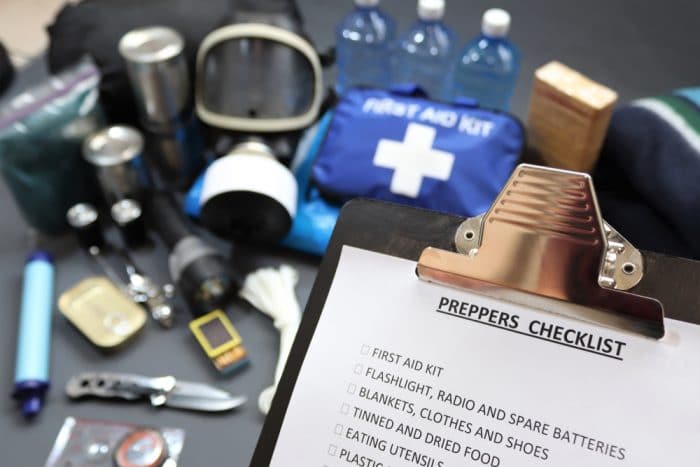
Of course, if you ask 100 different people to define what prepping is, you’ll get 100 different answers.
In general, the practice of prepping is just getting ready to survive any emergencies that might happen in your area. These will vary depending on where you live — and we’ll get deeper into that subject in a moment.
We see preppers in popular culture all the time. Sara Connor, of “Terminator 2: Judgment Day” fame, was a prepper, hoarding supplies and ammo to combat the inevitable rise of Skynet.
The main characters of the recent horror film “A Quiet Place” were also likely preppers, able to live a comfortable and relatively normal life in spite of the collapse of the world’s infrastructure.
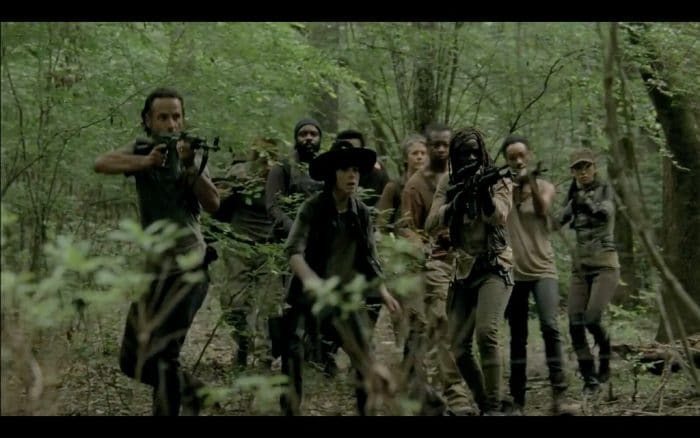
Other popular post-apocalypse shows and movies tend to showcase what might happen if you don’t prepare for the end of the world.
Shows like “The Walking Dead” fuel drama with their protagonists by forcing them to wander the zombie-infested wasteland that used to be the United States, scavenging for whatever food or fuel they can find.
In fiction, this moves the plot forward. After all, no one would want to watch a zombie apocalypse show about a well-supplied prepper living safely within their compound.
Logical Reasons to Start Prepping
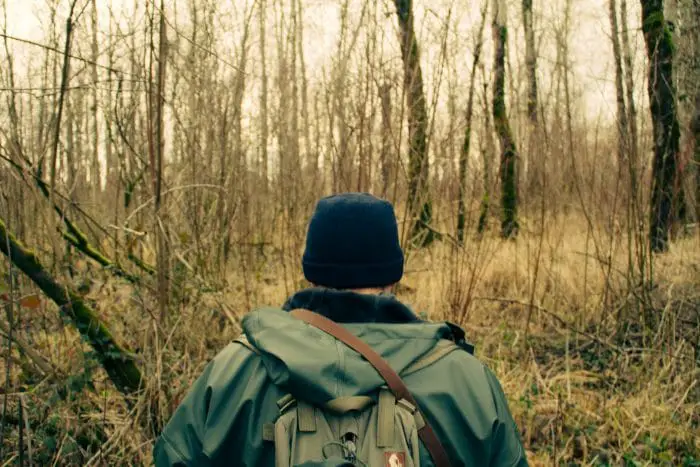
Prepping is something that people laugh at, thinking they’ll always be able to drive to the grocery store for their weekly meals or to the hospital for medical care. There are plenty of completely logical reasons to start prepping, and none of them have anything to do with zombies.
No matter what late-night infomercials try to tell you, no one is capable of predicting the future. You have no idea what might happen tomorrow, next week or in the next 10 years.
We could transition into a perfect utopia, or the entire world could fall apart. We could have sunny weather or a tornado tomorrow.
While we can track things like weather, we tend to live our lives under the assumption that the grocery store and doctor’s office and internet and our other modern conveniences will always be there.
Preppers feel that we may, at some point, need to become self-sufficient because those modern conveniences won’t always be available.
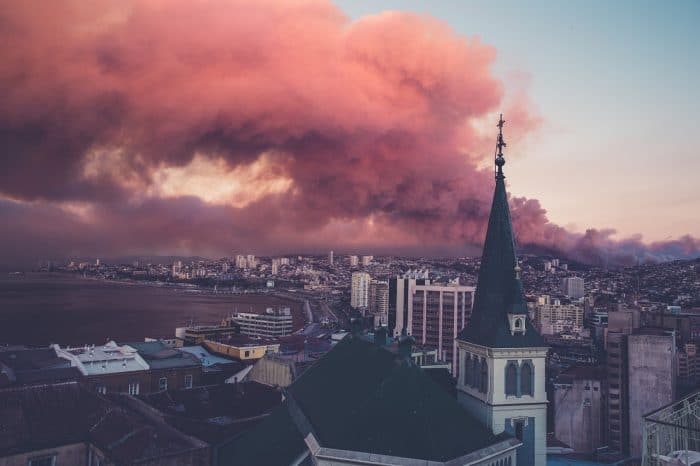
Preppers also tend to be associated with the end of the world — that one big bomb or plague or disaster that knocks the human race back into the Stone Age in one fell swoop. They don’t think about the more likely results — the gradual decline that will lead us slowly back into prehistoric times, one modern convenience at a time.
The same sort of prep you’d do to survive a nuclear war will serve you if the fossil fuel industry collapses and you can no longer get groceries. It will also help if the cost of electricity shoots through the roof before sustainable energy becomes possible.
We’re already experiencing many changes that could, slowly but surely, lead to the decline of modern civilization. There are climate change and more severe weather, as well as the move toward the post-work economy.
Prepping isn’t just something to laugh at from afar — it’s quickly becoming the smartest thing you can do to secure your future, and the future of your children.
You Are Already a Prepper
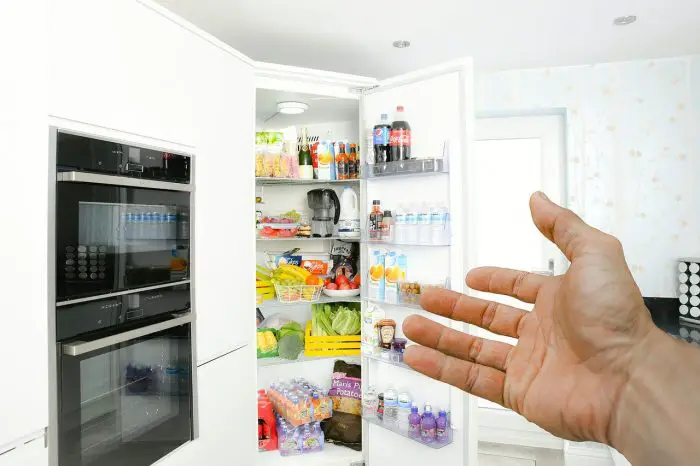
Whether you’re planning for the end of the world or just the next hurricane season, believe it or not, you’re already a prepper. Hear us out before you start shaking your head.
You’ve got at least a few days worth of food in your fridge or pantry, right? Probably more, if we’re being honest, because you always end up buying more dried and canned goods than you need.
You’ve got health care, homeowners and automotive insurance. These are things you hope you never need, but you keep them on hand just in case the worst happens and you require home repairs or medical attention.
You have fuel in your vehicles, and maybe an extra can in the garage or shed, just in case. You make it a point to keep your cars above half a tank, in case you need to make a trip and can’t stop at the gas station.
You have a first-aid kit or two in your home or at least a couple of boxes of bandaids. Again, these are things you hope you never need, but inevitably do, so you make sure you have them on hand.
You have a savings account for emergencies and a retirement account for when you reach 65 or 67 and are ready to leave the workforce.
You check the weather to see how you should prepare for the day.
All these things are forms of prepping. Even if you don’t have stores of food that will last you months or years, you’re already preparing for circumstances that are out of your control.
Strategic Prepping Plan

Let’s take a closer look at a simple strategic prepping plan you might want to adopt if you’re interested in becoming a prepper, or at the very least, in being prepared for the unexpected.
First, you don’t need to break the bank to gather the supplies you need to survive for a few days. Keep in mind the rule of threes when it comes to survival:
You can survive three minutes without air, three days without water and three weeks without food. It’s not pleasant, but you can do it. Break down your supplies into five categories before you start collecting them:
- Food
- Water
- Sanitary items
- Emergency items
- First aid
By shopping for sales and being smart about the things you choose, you can set up a decent supply stash for less than $400.
For food, you’ll want nonperishables and canned goods — things that won’t spoil if you don’t use them right away. Most canned goods have a shelf life of one to two years or longer, so look for things that you’ll be able to store long term.
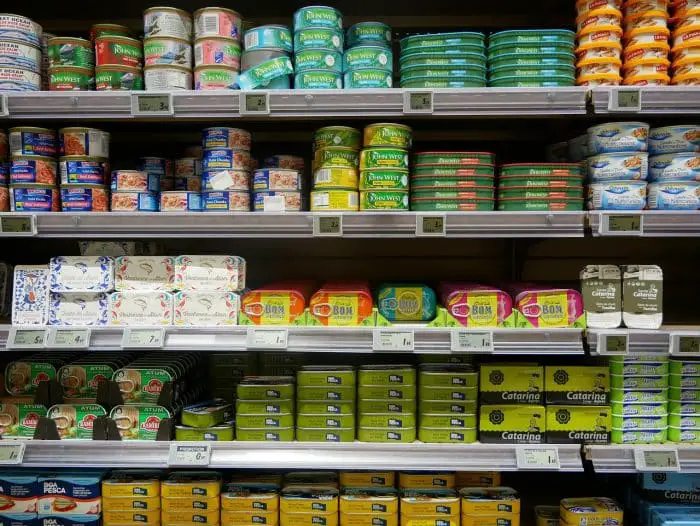
For water, you’ll need a gallon per person per day. You can stock up on bottled water and various containers, but you should also include purification tablets or household bleach so you can clean any water you collect. This includes tap water if local infrastructure isn’t functioning.
For sanitary items, stock up on toilet paper. We’re not even kidding. Horde that stuff like it’s gold because you’ll miss it when it’s gone. Other sanitary items you will need might include bleach, baby wipes, tissues, hand sanitizer, toothbrushes and toothpaste, and tampons or sanitary napkins.
Emergency supplies will include things like flashlights and candles, fishing gear, power banks for charging cellphones, plastic bags and other similar items.
Keep your first-aid kit stocked and ready to use, and rotate items out frequently as they get old or expire.
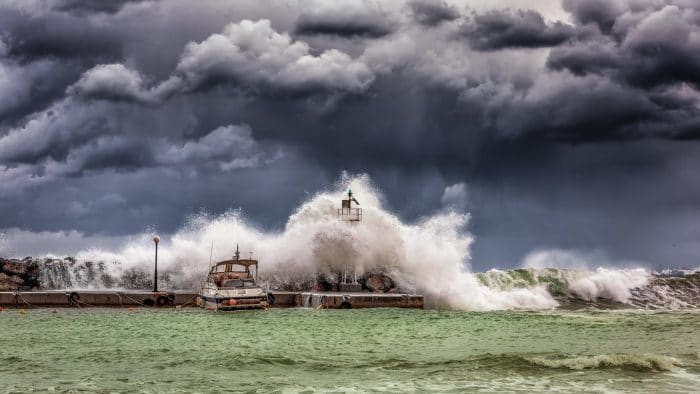
Once you have your supplies on hand, you’re going to want to prepare for the most likely events in your area first. That will depend on where you live. In the South and Southeast regions of the country, hurricanes are the most common natural disaster you’ll encounter.
Along the Pacific Coast, earthquakes due to tectonic instability along the Ring of Fire and wildfires are most common. In the Midwest, there’s the risk of flood. Florida is prone to sinkholes, where the ground disappears from beneath your feet, and mountainous states are at risk for avalanches.
Study the history of your area and see what natural disasters you’re likely to encounter. That will let you prepare for the events where you will most likely use your supplies.
Speaking of preparation, how long should you be prepping for?
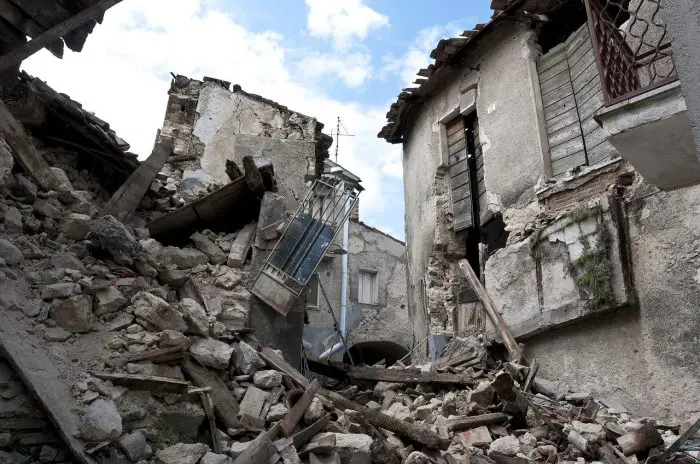
That depends on the state of things, where you live, and whether or not the world is expecting that big catastrophic event. In general, for natural disasters, you’ll want to be prepared for a minimum of 72 hours.
In most cases, while emergency services will do what they can, you’ll need to survive on your own for the first three days after a disaster. For severe events, you’ll want to have supplies that will last at least two weeks, or longer if you’re in a remote location.
For world-ending events, you’re going to need supplies that will last you a year or more. At the very minimum, you’ll want heirloom seeds and enough food to last a growing season until you can get a garden going and start seeing a harvest from it.
Being Prepared Is Half the Battle
Prepping isn’t just being prepared for the end of the world. It’s about being ready for whatever the world throws at you, whether that’s a tornado, hurricane, earthquake, plague, nuclear war or the zombie apocalypse.
How to Start Prepping
1. Food Supply
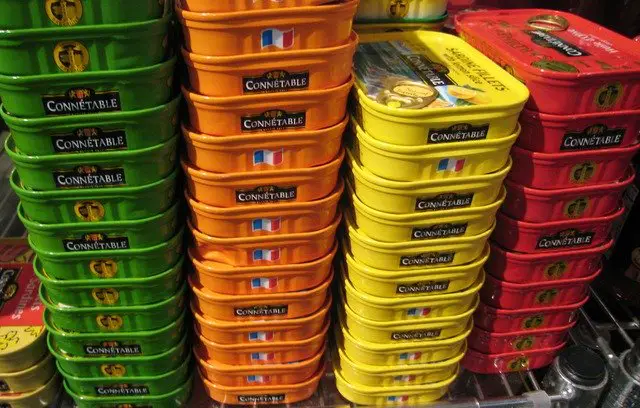
First and foremost, stock up on nonperishables — rice, beans, canned goods, freeze-dried food and MREs are all good options for your emergency food stockpile. You can use frozen foods as long as the power grid holds out.
If you lose electricity, everything in your freezer will spoil within a couple of days unless you smoke or salt it.
Once you have a place set aside to store your stockpile, start picking a little bit at a time and keeping it secure. If you buy tuna for lunches, pick up a few extra cans for your stockpile.
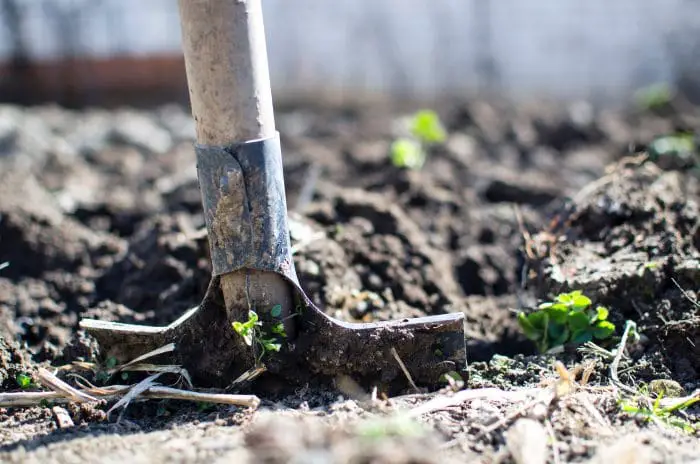
The second part of your food supply will likely consist of heirloom fruit and vegetable seeds that you can plant and grow. Ideally, you’ll want to start and maintain a vegetable garden before an emergency happens.
If you don’t have the option to do so, keeping heirloom seeds and gardening equipment in with your food supplies can help keep you fed even if things don’t go back to normal.
You’ll need airtight storage for your dry goods like rice and beans to prevent moisture from damaging your food supply, as well as keep pests out. If possible, store your supplies in a cool, dry place like a basement to keep them safe until you need them.
2. Water Storage
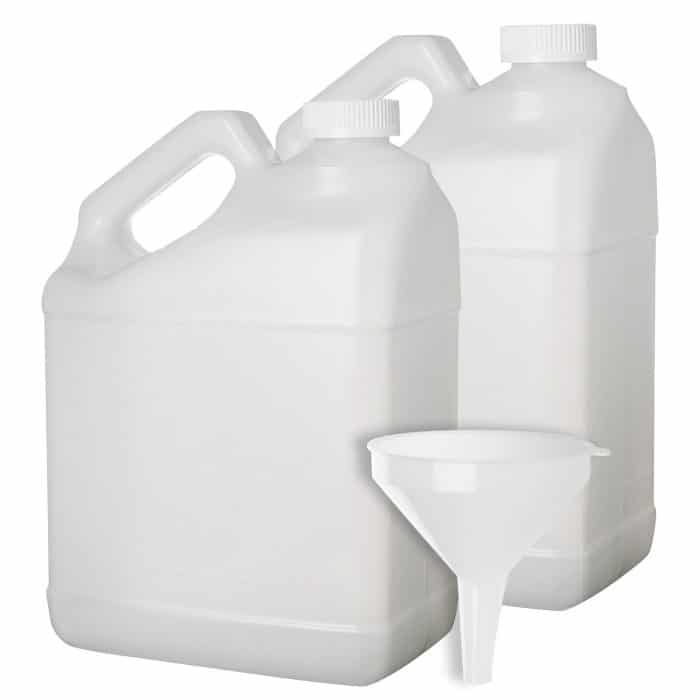
Bottled water might be convenient if you need to grab a quick drink, but it can take up a lot of space if you need to store large amounts of water.
The federal government recommends storing a three-day supply — at 1 gallon a day per person — while FEMA recommends storing 1 gallon a day per person for up to two weeks.
If you follow FEMA’s recommendations, that is 56 gallons of water for a family of four, and that will take up a lot of space if you opt for single-use bottles.
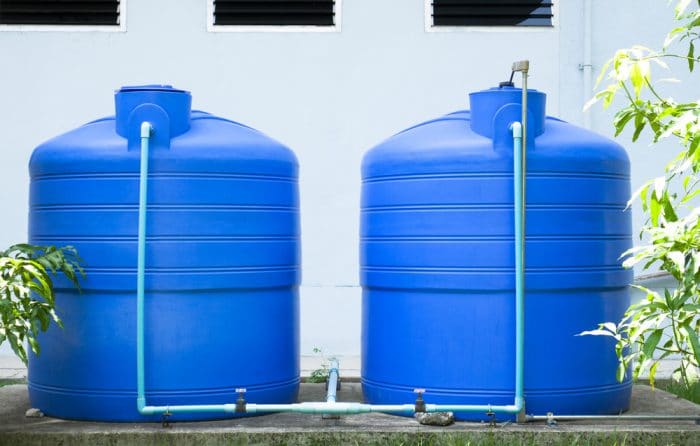
Opt for large opaque containers that keep sunlight out. Don’t rely on the bottles your water comes in. Gallon jugs have a shelf-life of about 12 months before they’ll start leaking all your emergency water over the floor.
Water bricks — large plastic containers — are a great option. You will still need to rotate the water once a year to prevent mold or bacteria from contaminating your supply, but all you’ve got to do is dump and refill these reusable containers.
3. Cooking
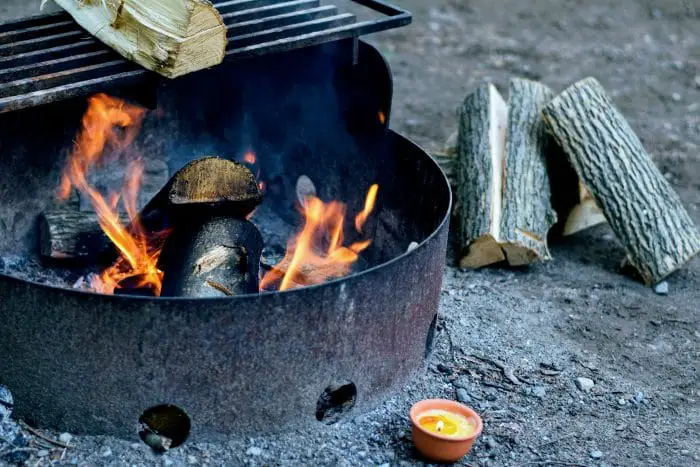
Turning on the stove isn’t going to be an option if the power grid fails or you run out of propane or natural gas. You will need a way to cook all these foods you’re storing up in case things take a turn for the worse.
A wood-fire grill, firepit with a cooking grill, or a rocket stove is going to be your best bet in these situations. Wood is almost always readily available as a fuel source, and you can cook just about anything over a campfire.
Invest in some high-quality cast iron cookware that works well over an open flame, and you’ll be an expert in emergency cooking in no time.
4. Off-Grid Waste
If the world ends, most of our creature comforts will end with it. That, unfortunately, includes things like indoor plumbing.
Once we’re totally off the grid, it’s up to us to manage our waste in such a way that it won’t contaminate our home, the surrounding area or the local water table — especially if we’re relying on well water.
In this case, learning how to dig a latrine — as well as how to maintain and move it if necessary — can help manage human waste.
When it comes to garbage, we likely won’t be able to haul our trash to the local landfill, so you’ll need to come up with a plan to manage that as well.
Reusing some items can help to reduce your overall waste output. Organic trash — such as paper and food — can all be composted to help your garden grow.
5. Bug-Out Plan
While you’ll probably be stocking up on water, food and other supplies at home, it may not always be safe to shelter in place. You also may not be home when the SHTF, so you’ll need to create a plan to gather all your family members and make it home safely.
Try to plan for any potential variables, from where people might be throughout the day to how you’ll get home if an EMP knocks out your car and cellphone. Having a bug-out plan in place can help you stay calm when the rest of the world is panicking around you.
6. EDC, Survival Gear and the Bags
Along with your bug-out plan, you’ll need supplies you can carry with you. These fall into three categories — everyday carry or EDC, survival gear and bags.
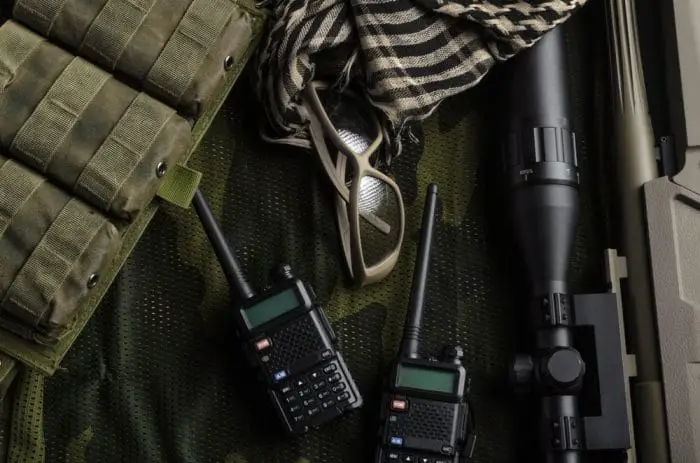
EDC kits are designed to be carried in a pocket or purse and kept on you at all times.
They include things you use every day anyway — cellphone, wallet, keys, cash — as well as a few survival tools that might help increase your survivability and make it easier to navigate a post-apocalypse world.
Just throwing a lighter and a pocket knife in your pocket gives you an advantage over those without.
Survival gear will be the bare minimum you need to survive out in the world. In addition to a knife and a lighter, things like a compass, fishing hooks and other similar tools should be on this list.
There are a couple of different bags you’ll want to have on hand. Bug-out bags should have all the supplies and important paperwork you need to survive if you can’t go home, for the duration of an emergency.
Get-home bags will have everything you need for a few days, enough time to make it back to your shelter. 72-hour bags, as their name suggests, will have enough supplies to keep you moving for 72 hours.
7. Build Basic Wilderness and Survival Skills
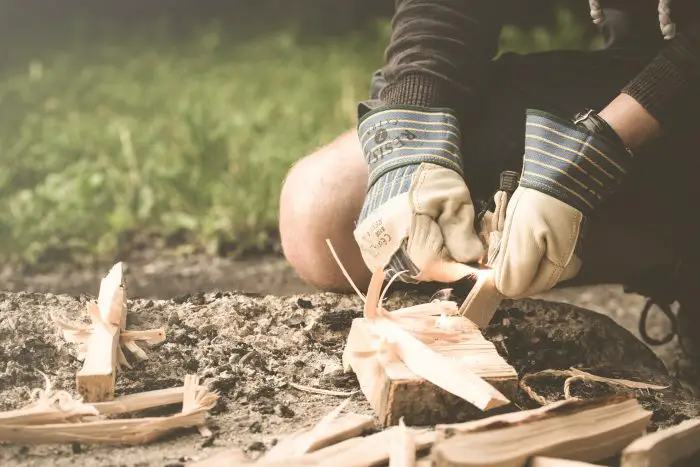
Once the SHTF, you’ll need to be able to take care of yourself and your family without the creature comforts that we’re so used to.
That means learning and honing basic wilderness and survival skills. These are important things you can teach other members of your family about.
That way, you can split up tasks and get jobs done efficiently. Learn things like:
- Starting a fire without matches or a lighter
- Filtering water
- Building a shelter
- Hunting or trapping food
- Fishing
- Growing food
- Staying warm
Other skills, like crafting survival tools, won’t just keep you alive — they can be a valuable bartering tool as well.
8. Improve Fitness
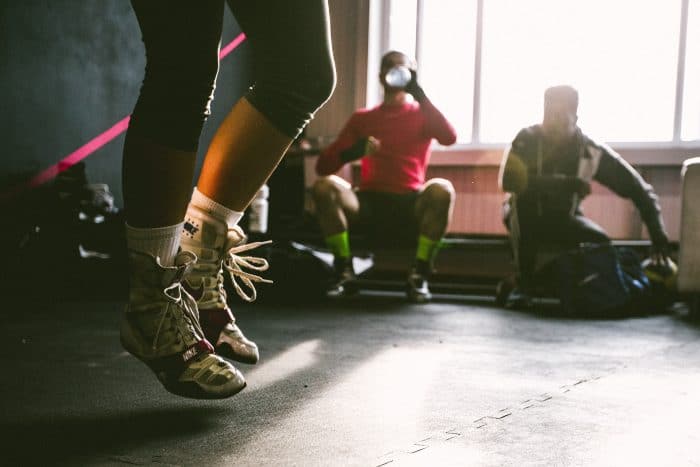
Remember the first rule of Zombieland? Cardio. You won’t be using your car to get everywhere, and public transportation will be totally off the table. While you’re preparing your supplies and your home, take the time to improve your physical fitness.
Cardio and stamina will keep you alive, whether you’re running from zombies, trying to evade enemy troops, or simply tracking a deer while you hunt. You don’t need to be a sculpted bodybuilder, but couch potatoes won’t do well in the apocalypse.
9. The Two Defenses: Self and Home
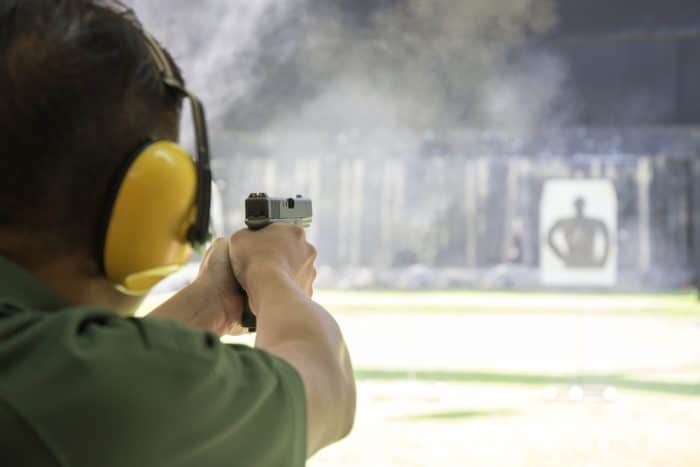
Calling the police isn’t an option at the end of the world. You’ll need to be able to defend both your home and yourself. Weapons — both firearms and melee varieties — are only useful if you know how to use them.
Take the time to hone your self-defense and home defense techniques. If you choose guns, take them to the range and practice. You should also learn how to clean and repair them, since heading to the shop won’t be an option if you lose a firing pin or break something.
Emergency vs. SHTF/TEOTWAWKI Prepping
Prepping falls into two different categories, depending on the kind of event you’re preparing for.
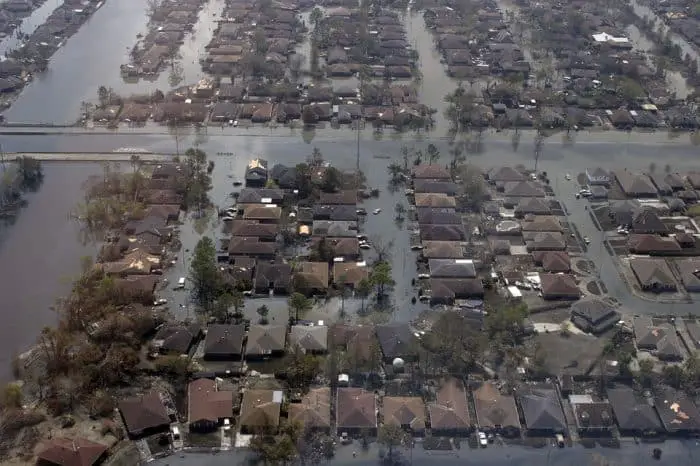
First, there’s emergency prepping. This includes preparing for things like economic or social collapse, infrastructure failure or natural disasters that are limited to a single region. These events can be short or long term.
Preparing for a hurricane is an example of emergency prep — you expect to be out of power for a few days, so you stock up on food, water, and booze to ride out the storm.
Social and economic collapse emergencies might last longer, depending on their severity, so the best idea is to be prepared for anything.
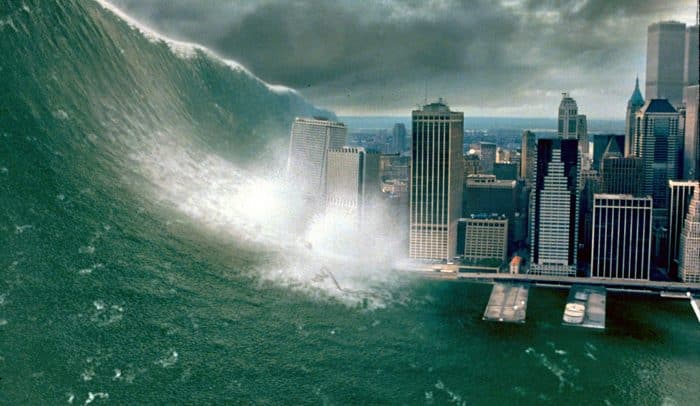
Next is SHTF events. The acronym stands for “shit hits the fan” and it’s a blanket descriptor for anything that threatens life and limb on a global scale.
Things like nuclear strikes, disease pandemics, asteroid impacts or the eruption of the Yellowstone caldera would all qualify as SHTF events. Essentially, if it’s going to end the world, it counts as SHTF.
TEOTWAWKI is another acronym that can be used to describe these world-ending events. It stands for “the end of the world as we know it,” and it’s the next level up from SHTF events.
The two acronyms are often used interchangeably, but while we might recover from an SHTF event, TEOTWAWKI emergencies are often game over for life as we know it.
Practice Makes Perfect
Now that you’ve got your supplies gathered and you’ve mastered the basics of your survival skills, you can just sit around and wait for the end of the world, right? Not if you want to make sure you’re ready for anything.
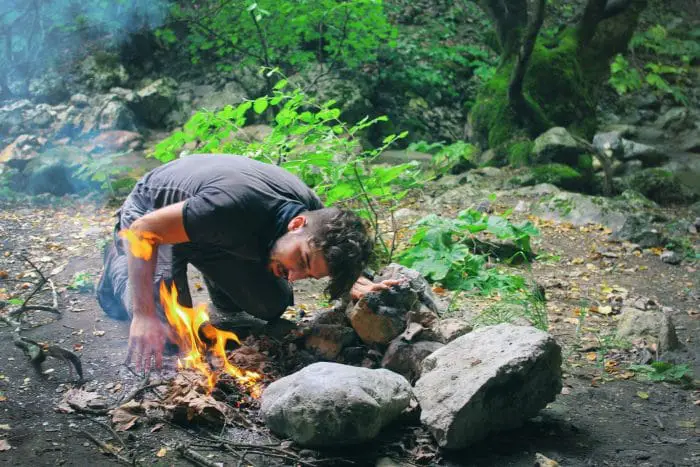
Many of the survival skills you’ve learned — from self-defense and firearms discipline to starting a fire and cleaning a fresh kill — rely heavily on muscle memory.
While you’re learning the skill on an intellectual level, you’re also turning it into an instinctual behavior. If you repeat a behavior over and over again, your muscles start to remember the motions.
A recent study suggests that this process is due to the fact that muscle cells are unique — they can have more than one nucleus within each cell.
Once muscle memory develops, it never goes away even if you lose muscle tone due to inactivity. A study in mice found that their muscle strands gained new nuclei from repetitive exercise.
When they stopped exercising, the mice lost upwards of 50% of their muscle mass, but the number of nuclei in their muscle cells remained the same.
It’s akin to field-stripping a weapon — you do it over and over again, repeating the same motions until it you don’t have to think about them anymore.
It moves from being a conscious decision to an instinctual one. This transition is vital for potentially life-saving skills like firearms discipline and self-defense.
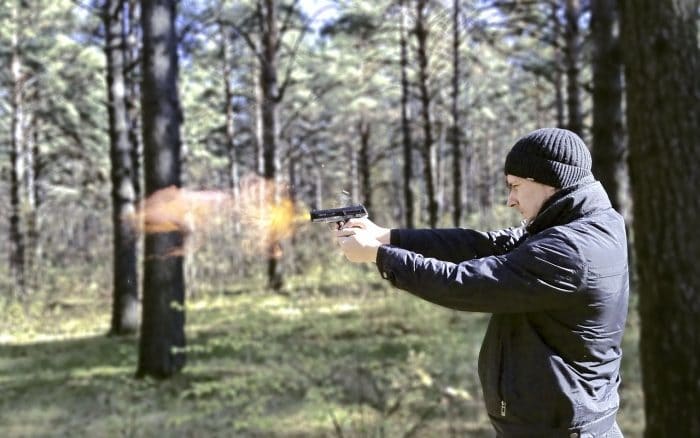
Take classes specifically designed to help you react better in survival situations. In an emergency, you’ll have to make split-second decisions — you won’t have time to think before you act.
Muscle memory and instinct will kick in in these situations if you’ve practiced long enough, and they could potentially save your life.
You won’t be able to ignore your gathered supplies either. While your dry goods might have a shelf life of decades or more, they’re only as good as your storage containers.
You need to keep them free from pests, moisture, and other contaminants, or you risk losing the entire supply to mold, mildew or particularly enterprising rats.
Properly stored water has a shelf-life of a few years, but you need to check it every six months or so to make sure it’s still safe to drink and isn’t playing host to bacteria or algae that would make it undrinkable.
Non-food supplies also need to be inspected on a regular basis too. Gasoline, in a sealed metal, can that’s been treated with fuel stabilizer, can be stored for up to a year — two if you double the amount of stabilizer you add — but eventually, it will turn to varnish if you don’t use it.
Make it a point to use up what you have stored and refresh your supplies every six months or so to make sure you’re not wasting money on fuel you let spoil in your shed.
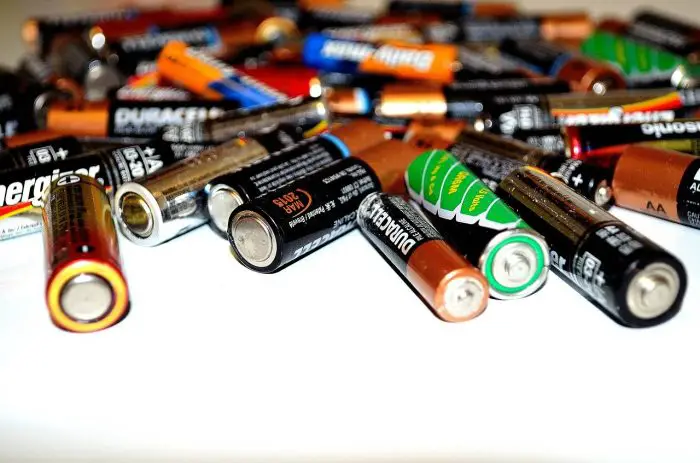
Batteries should also be inspected once a year. They may halve a shelf life of 5 to 15 years, depending on the type of battery, but you’ll want to ensure that they don’t show any signs of bulging or leakage.
Joining Prepper Networks and Communities
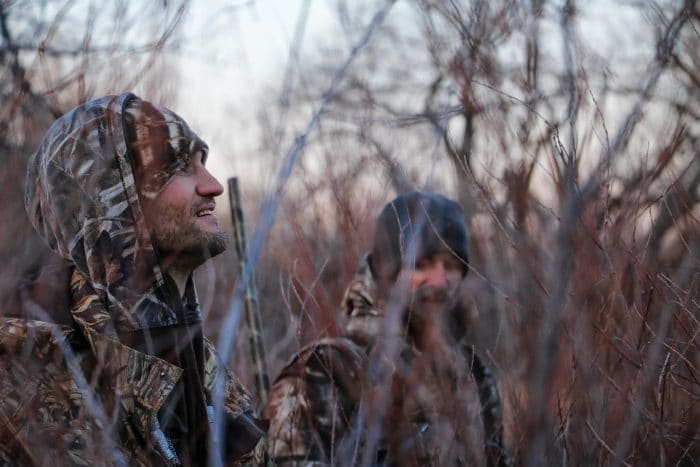
They say it takes a village to raise a child, right? Well, after the end of the world, it will take villages to survive.
You might have all the supplies you could need to keep you and your family safe and fed, but it would take you a thousand lifetimes to master all the skills you might need to survive and rebuild in this new post-apocalypse world.
After the worst happens, communities will come together based on the skills and services they need. You can’t go to Ikea for a new bed frame after the end of the world, but you can commission one from your local carpenter.
You won’t be able to go to the doctor, but you might have a medical professional in your midst who can handle most illnesses and injuries.
Instead of waiting for these villages to pop up after the end of the world, take the time to network now. There are numerous prepper websites and social media groups that can help you connect with other like-minded individuals in your area.
While the internet likely won’t be a viable source of information and communication once the shit hits the fan, that doesn’t mean you can’t use it now to create a network of preppers with whom you stay in touch.
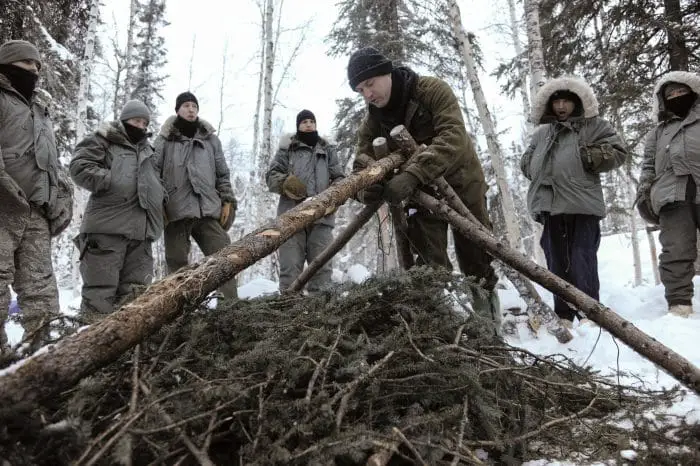
Prepper networks are also a treasure trove of information on nearly any prepper-related subject. Want to learn how to properly store your water supplies or keep pests out of your 50-gallon barrels of rice?
Maybe you need some advice on storing your supplies when you’re living in a one-bedroom apartment or a mobile tiny house that’s only got 300 square feet for you to work with.
Whatever your question is, the chances are high that someone has already experienced the situation or thought of the answer and is happy to share it with you.
As with any and all online communities, you’ll occasionally find a bad egg, but they don’t have to spoil the bunch. They’re usually dealt with both quickly and mercilessly.
These online prepper networks are a fantastic tool that you should take advantage of before you really need them. All you have to do is sign up and start posting. You might be surprised by how much information is out there for you to find.
Actions — and Lack Thereof — Have Consequences
We’ve spent a lot of time talking about why you should prepare for the worst, but what happens if you don’t?
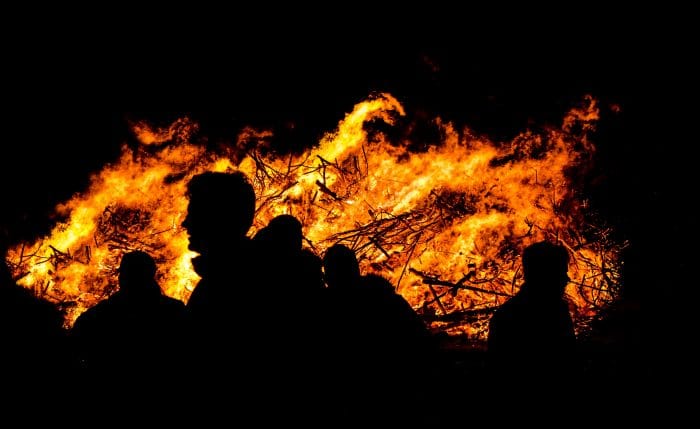
Let’s set up a hypothetical situation to help us paint a picture. There’s been a nuclear strike, and while you’re outside the immediate kill zone, the EMP from the blast has knocked out all local infrastructure.
That means no water, no electricity, and no internet. You’re essentially in the dark ages. If you’ve taken the time to gather supplies and prep, you have everything you need to hunker down and shelter in place.
But if you’ve been like the allegorical grasshopper, whiling away the summer while the ants stored their supplies for winter, you’ll find yourself in trouble.
Remember the rule of three when it comes to survival — three weeks without food, three days without water and three minutes without air.
With the electricity and the air conditioner off, you’ll start sweating fairly quickly. You’ll get thirsty, and if you can’t turn the tap to get water, you’ll start questing out into the wasteland to find supplies.
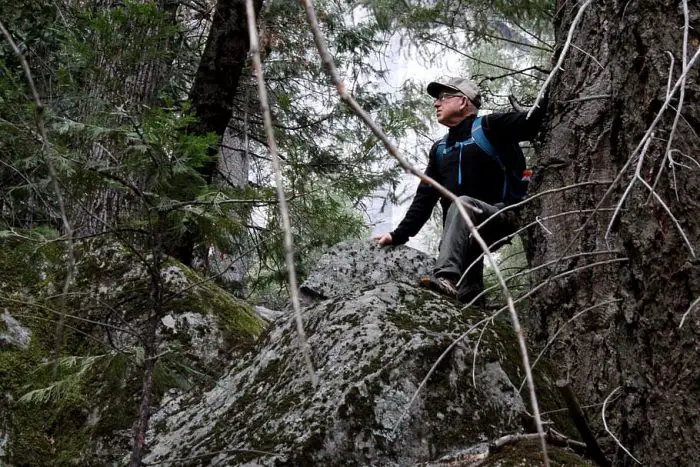
If you don’t have the information — from maps or radio, since the internet and GPS won’t be functioning — you might find yourself wandering into a cloud of nuclear fallout that’s traversing the landscape.
At that point, you won’t need to worry about finding supplies because you’ll be dead in a few days. If you manage to avoid the fallout directly, you may find that any remaining supplies have been contaminated or already gathered by looters.
They might be happy to sell it back to you if you’ve got something to barter with. Unfortunately, the money you had in the bank was just ones and zeroes that got wiped out by the EMP.
Even the money in your wallet isn’t worth the paper it’s printed on if the government that supports the economy has collapsed.
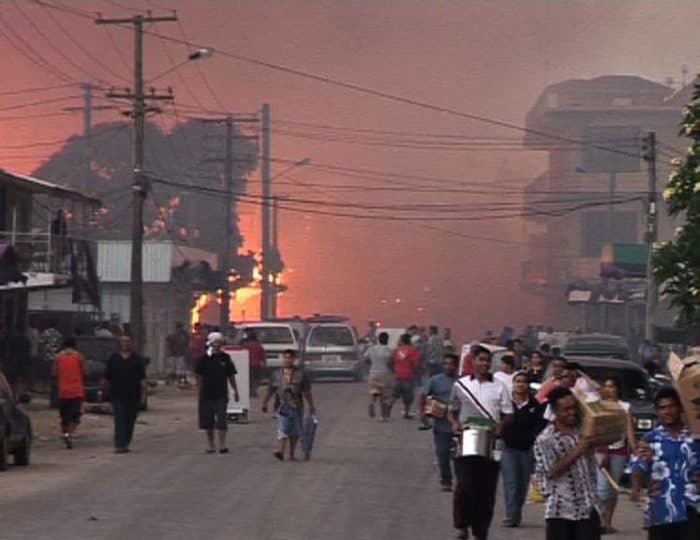
Of course, that’s assuming the looters don’t just kill you outright and take what little stuff you have.
Actions have consequences, and if you don’t take the time to prepare for whatever the world might throw at you, it’s going to chew you up, spit you out and not even give your bones a second thought when they vanish into the dust.
Prepping Gives Freedom and Peace of Mind

In today’s world, we’re drowning in information. We’ve got the breadth of human knowledge at our fingertips, so we always know when something goes wrong.
We know when the earth shakes under our feet, when battles break out in warring countries and when the dictator of a dangerous country sneezes.
We know all the bad things that might be coming our way, and for non-preppers, it’s a source of constant fear and apprehension.
If you’re a prepper, while you know there’s always the potential for something to happen that you’re not prepared for, the chances are fairly slim because you’ve taken the time and spent the money to prepare for any eventual contingency you can think of.
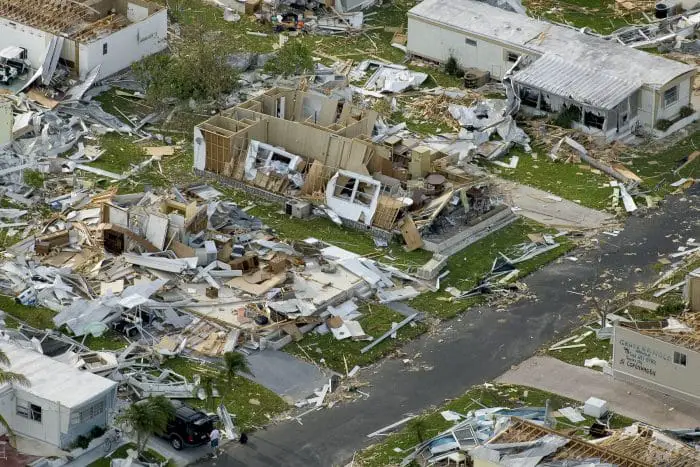
Prepping, taking the time to prepare for anything, will give you the peace of mind that comes from knowing you’ve done everything humanly possible to ensure that you and your family can survive and even thrive if the worst happens and the world ends. It’s not the peace of mind of the blissfully ignorant — it’s the peace of mind that comes from going into any situation fully prepared, with your eyes open, head held high and coffers full.
Preparing for the end of the world is also incredibly freeing. You’re free to go about your day, content in the knowledge that you’re ready for anything. You’re always aware that there’s a potential threat on the horizon, but you don’t have to be afraid of it because you know you’ve done everything you need to get ready.
If you want to secure peace of mind in a volatile world like the one we live in today, remember that prepping is the best way to do it. You don’t need to be afraid of what the world might throw at you. Prepping might take time and money, but if you ever end up needing those emergency supplies, it will be worth every penny and every minute spent.

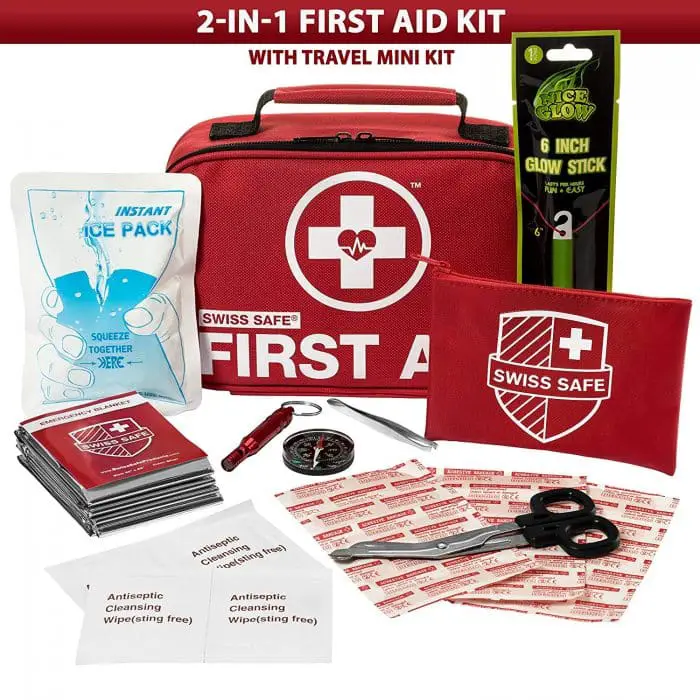
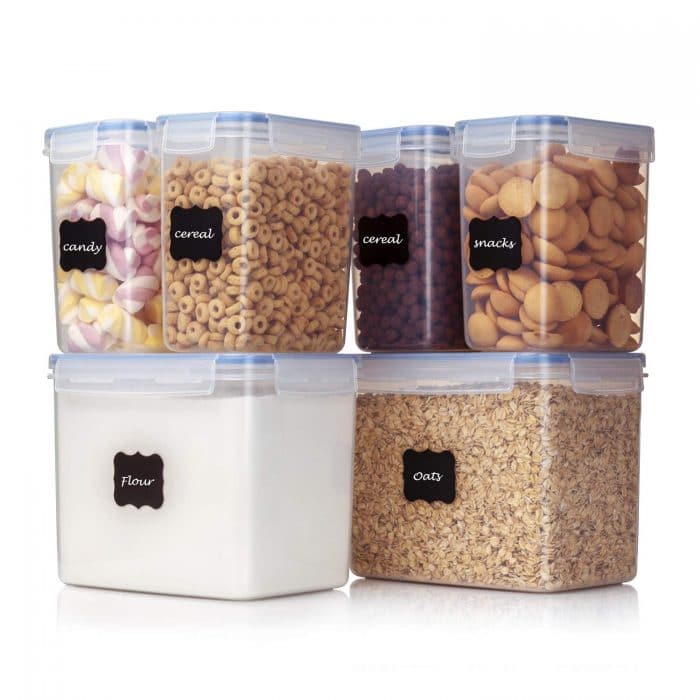
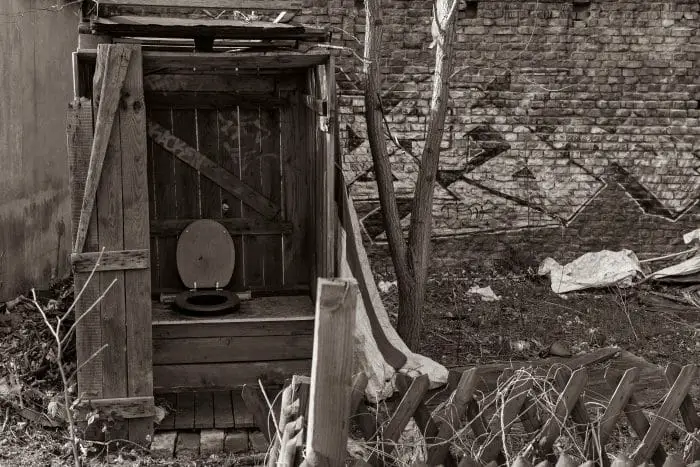
If you want to secure peace of mind in a volatile world like the one we live in today, remember that prepping is the best way to do it. You don’t need to be afraid of what the world might throw at you. Prepping might take time and money, but if you ever end up needing those emergency supplies, it will be worth every penny and every minute spent.
Categories
Starting with prepping is a little challenging for me. Researching everything I can. HAHA! My sister laughed at me as she thinks it is much work to do but I am committed to starting this journey. This article helps me A-LOT!
I’d like to have my email added to your mailing list. I’m almost 68 yrs old, and I’d like to know how to take care of myself and my family. Thank you!